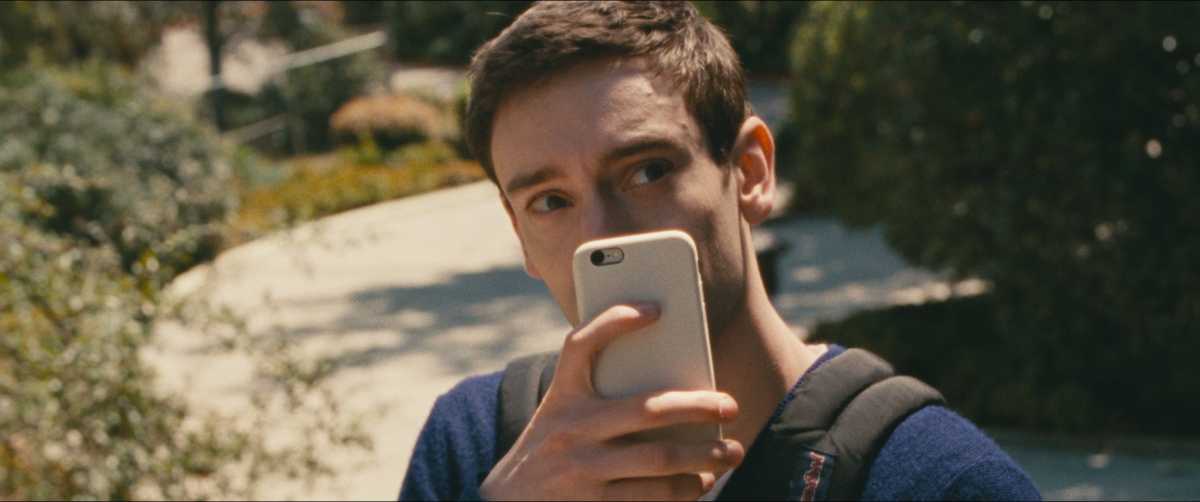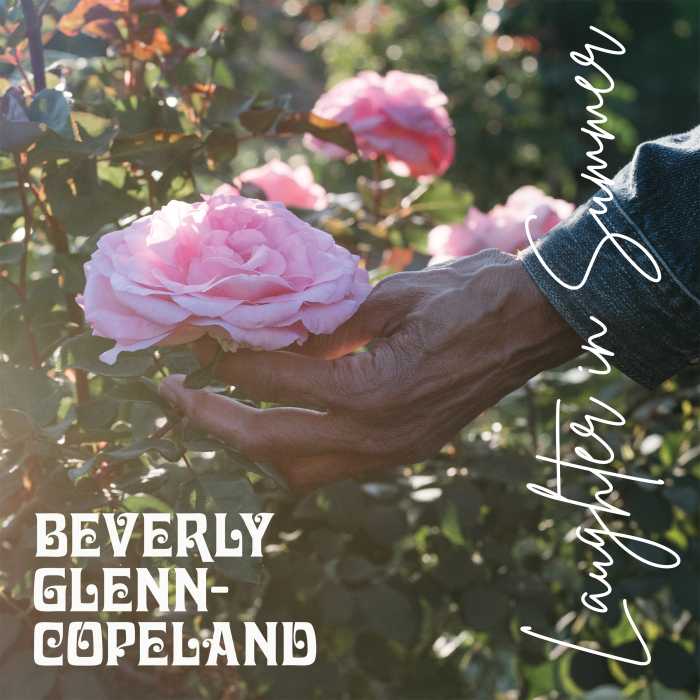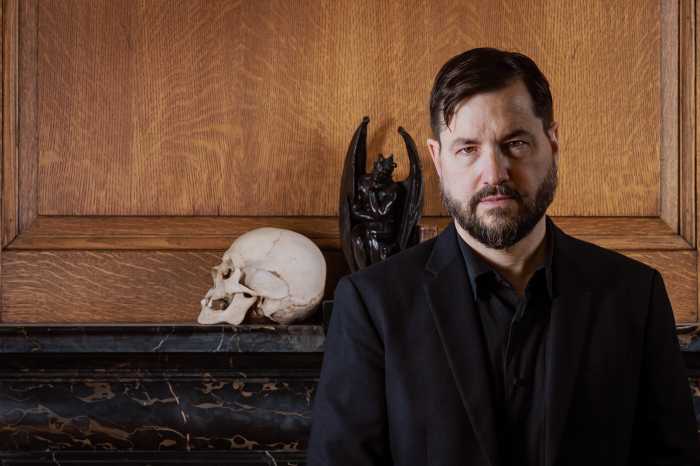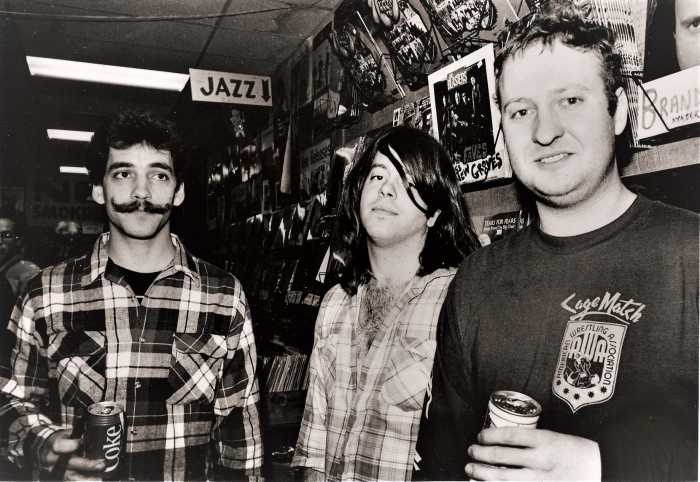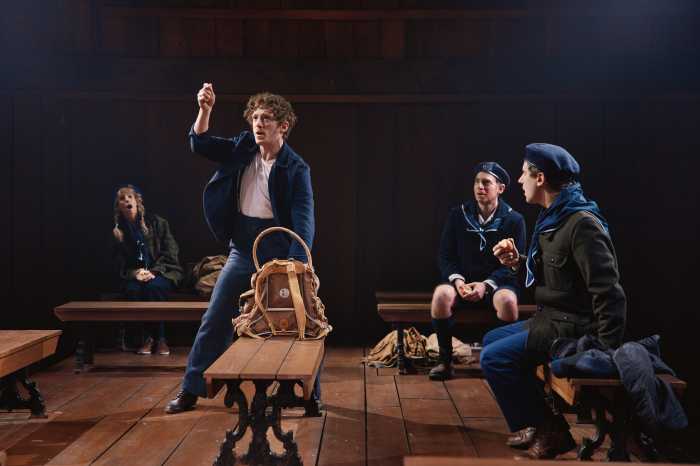The central relationship in director Alex Russell’s “Lurker” starts when pop singer Oliver (Archie Medekwe, who recorded his own vocals) walks into a Los Angeles clothing boutique and locks eyes with clerk Matthew (Théodore Pellegrin.) The fact that teenage girls snap photos of Oliver immediately clues us into his celebrity status. Although he and Matthew are strangers, they have a pleasant conversation full of unspoken attraction. (Matthew puts on Nile Rodgers’ “My Love Song For You,” which he knows to be one of Oliver’s favorite songs.)
Oliver invites Matthew to hang out backstage at his concert, and Matthew soon becomes a part of the singer’s entourage. Ostensibly there to work on a documentary promoting Oliver’s second album, he devotes himself to sabotaging other people so that his importance to Oliver will grow. (On a video shoot, he gets rid of the cameraperson’s battery, so that Oliver will have to use his own camera.) Oliver’s music is about to reach a new height of popularity, but he’s not there yet, and he’s nervous about the reception of his new album. Why does Oliver go back and forth between quick affection and wanting him out of his life? Is Matthew struggling with lust, careerism or a real yearning to make art? “Lurker” keeps the ball bouncing between all those options.
The bond between Oliver and Matthew, undeniably homoerotic but never fully acted upon, evokes the connection between two male tennis players in Luca Guadagnino’s “Challengers.” Russell continually directs the audience’s attention to its presence. Matthew wants to film an album cover with Oliver shooting a massive SuperSoaker, complete with phallic tip, into his mouth. When Matthew first meets Oliver’s crew, they tell him to take his pants off “in honor of our dead homie James, who was gay.” They’re taunting him, but he one-ups them by stripping off his underwear and baring his penis. Speaking about Oliver, Matt says “I’m his f**king muse,” while Oliver’s lyrics allude to their relationship.
By the final stretch, their relationship demonstrates that queerness is impossible to pry apart from conventional masculinity. Following the ideas of queer theorist Eve Kosofsky Sedgwick, they connect by having sex with women while staring into each other’s eyes. They may both be attracted to women, but they treat them as disposable: their greatest emotional bond lies with each other. They even end up wrestling and panting on the ground in each other’s arms. Russell admits that some spectators might prefer them to have sex instead.
The reasons why Oliver and Matthew don’t do so can’t be pinned down, but the film doesn’t posit homoerotic desire as a liberating force. “Lurker” sees men’s emotional lives fatally damaged by competitiveness. Most of this toxicity comes from the role money plays in this milieu. Russell has written, “I had observed the same kinds of patterns in groups of college roommates, unspoken hierarchies, alliances and betrayals among male friends. I had this sort of nauseous, shameful feeling around it all, but I had sympathy, as well. After all, I was participating in it myself.” As a writer on the TV shows “The Bear,” “Dave” and “Beef,” Russell knows the outskirts of fame.
Controlling the camera gives Matthew power. Rather than just looking at screens, he wants to create the content that plays on them. Proud to call himself an artist, he doesn’t care about Oliver’s music. His ambitions conflict with other people around Oliver: The singer’s video editor (Daniel Zohlgadri) looks as though he’s about to have a panic attack every time Matthew’s around. As Matthew appears in Oliver’s socials, strangers tell him they look up to him and treat him as though he’s famous too. These odd scenes testify to the way everyone who participates in social media has the potential to become a mini-celebrity for 15 seconds.
Fame’s pitfalls are a movie perennial. If Matthew could easily be reduced to a stalker, “Lurker” would be far less unsettling. For a while, it seems to be heading towards the erotic thriller’s theme of obsession turning violent, but it rejects easy conclusions. Russell bleaches the glamour out of Oliver’s fame. The singer can’t relax without considering having each moment filmed. Pat Scola’s grey cinematography keeps excitement at bay. Its handheld shots could’ve been taken on the characters’ phones, but “Lurker” never settles for an easy takeaway of “voyeurism and screens are bad.” Its sense of humor is too strong for it ever to turn moralistic. Rather, it descends, with a distanced irony, into a toxic maelstrom created by jousting for power and money.
“Lurker” | Directed by Alex Russell | MUBI | Opens Aug. 22nd at AMC Lincoln Square, Regal Union Square and Alamo Drafthouse Brooklyn

